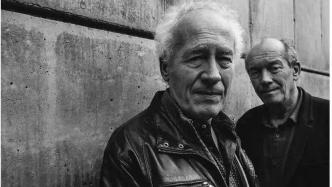
Since the debut of the 1996 film "Nuoganjin" at the Cannes Film Festival, the films of Belgian directors Dardenne Brothers have continued to be favored by Cannes. Twice the Palme d'Or for "Rosetta" and "The Child", plus "Young Ahmed" (Best Director), "The Silence of Lorna" (Best Screenplay), "The Boy on a Bicycle" (Jury Award), "Son of Others" (Best Actor) and other works, this pair of director brothers, who are not particularly prolific, won almost all the honors in Cannes. The almost social scalpel-like realistic style and vicious yet benevolent attention to reality make them well-deserved among the most important directors in the world.
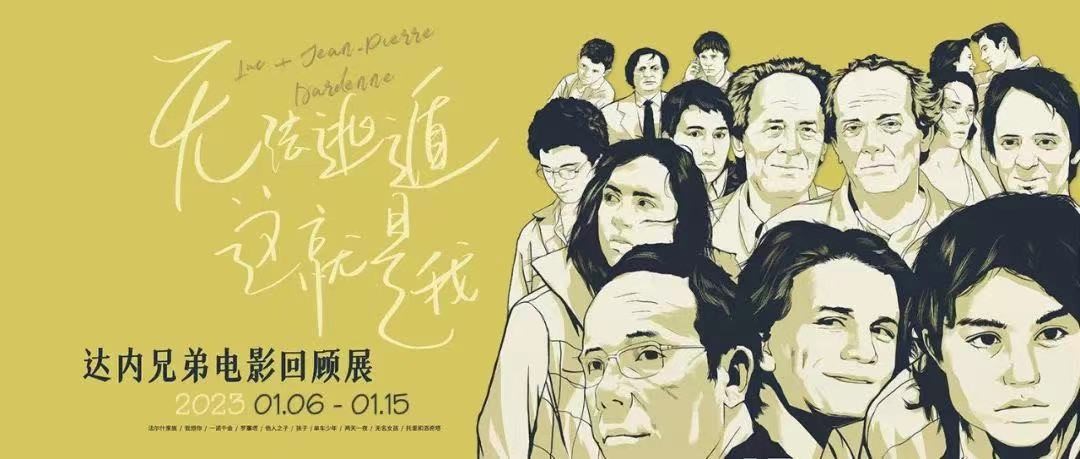
The Dardenne Brothers Film Retrospective Poster
For Shanghai movie fans, the first big meal in 2023 is undoubtedly the Dardenne Brothers film retrospective. The screening began on January 6, and 10 films directed by the Dardenne Brothers were screened in three theaters including MOViE MOViE Cinemas.
It is worth mentioning that the latest masterpiece "Tori and Rochita" of the Dardenne Brothers is also in the film list of this screening, and Shanghai movie fans have also become the first batch of the country to see this film on the big screen. The 75th Cannes Film Festival The audience at the "75th Anniversary Awards" of the film festival.
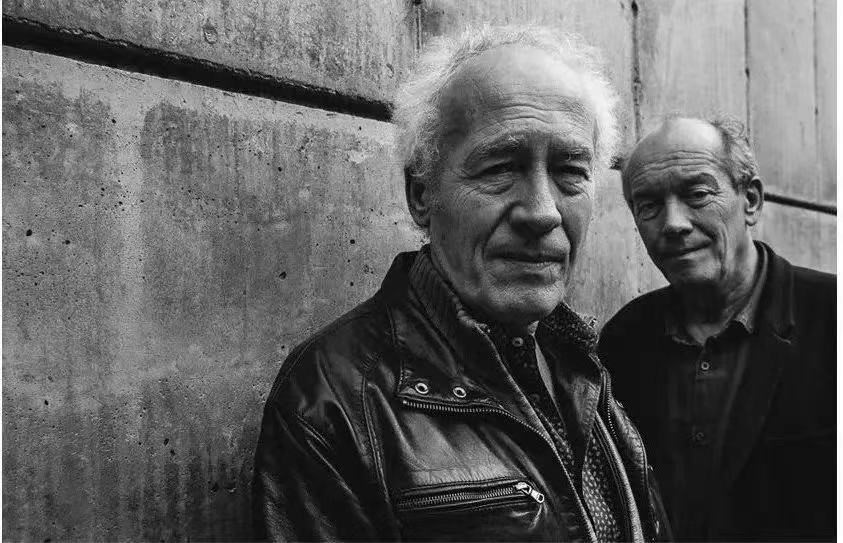
The Darnay brothers, Jean-Pierre on the left and Luc on the right
In the film world constructed by the Dardenne brothers, the rough image sense formed by a large number of live-action shooting, natural lighting, the use of non-professional actors, live sound recording and other techniques seems to be a direct interception of social reality. Using movies as knives, the sharp blade of images cuts through the plight and social reality of the bottom people in the background of European industrial cities in the post-industrial era.
Unemployed workers, immigrants who cannot obtain status, and abandoned teenagers, these marginalized groups "live" with difficulty and vividly in their films, sometimes walking on the edge of the ambiguous boundary between good and evil, and sometimes rubbing against the gaps in life. A romantic splendor that is out of place and self-contained.
From "Falsh Family" and "I Miss You", which just broke away from documentary creation in the early stage and are still in the experimental stage, to "One Promise" and "Rosetta", which established Darney's style and made the two brothers famous; from "Bicycle" From the true appeal of amateur actors in films such as "Youth" and "Children", to the subversive and stunning performance of Marion Cotillard in "Two Days, One Night"; Post-screening exchanges between movie fans and senior film culture scholars, this Dardenne Brothers retrospective presents a systematic context and rich vitality.
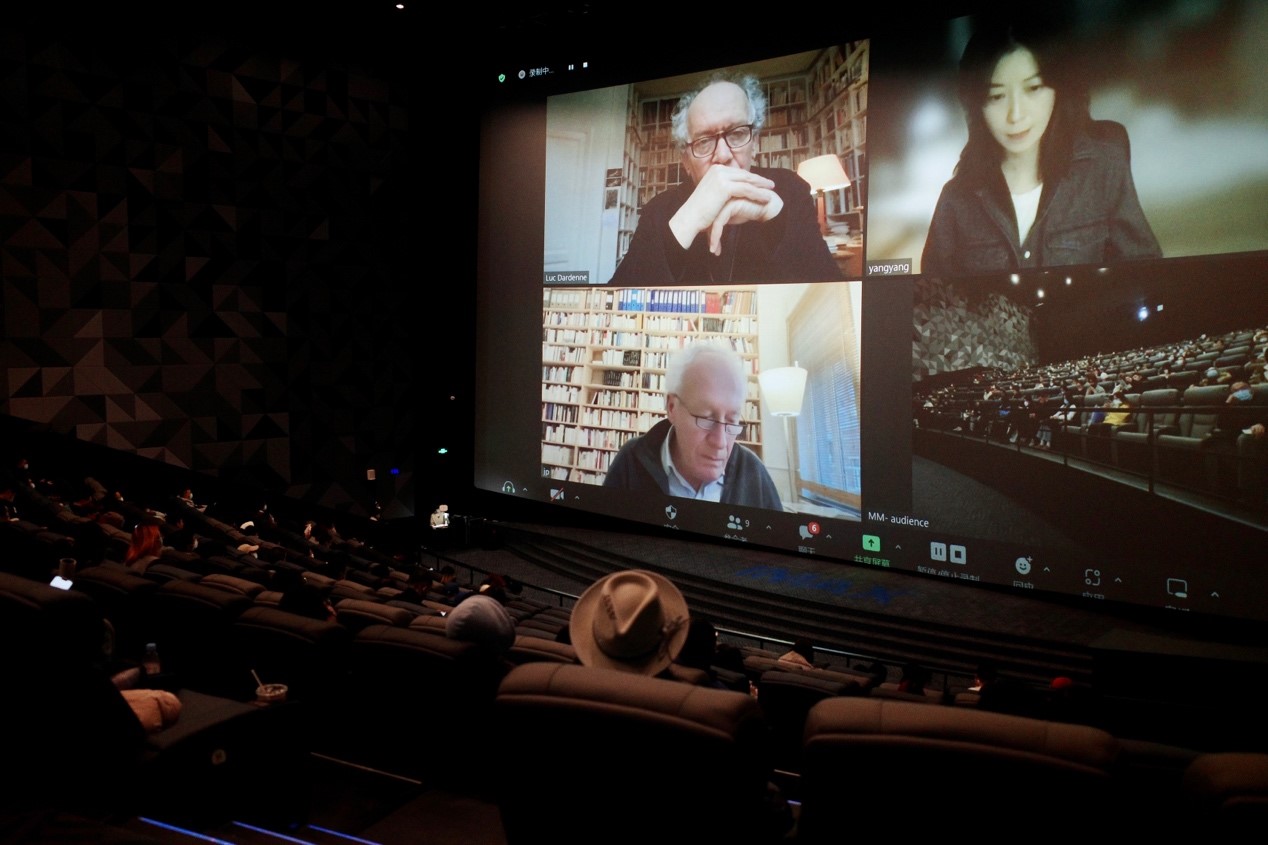
Dardenne Brothers live with the audience
On January 15, after the screening of the last film "Tori and Rochita" at the closing of the film festival, the Dardenne brothers had a live communication with the audience. From the creative process of the film spanning ten years to the cooperation between the two brothers spanning nearly forty years, the director and the audience talked freely. After hearing that his film was screened on the IMAX screen, the film master showed a lovely expression of surprise and surprise.
"Tori and Rochita" tells the story of an unrelated African-American brother and sister's desperate journey into exile in order to obtain legal status. According to reports, the process of film creation spanned 10 years. During the ten years, they shot three films: "Two Days and One Night", "Unknown Girl" and "Young Ahmed". From the original idea to the final presentation, many changes have taken place in the vision of the film.
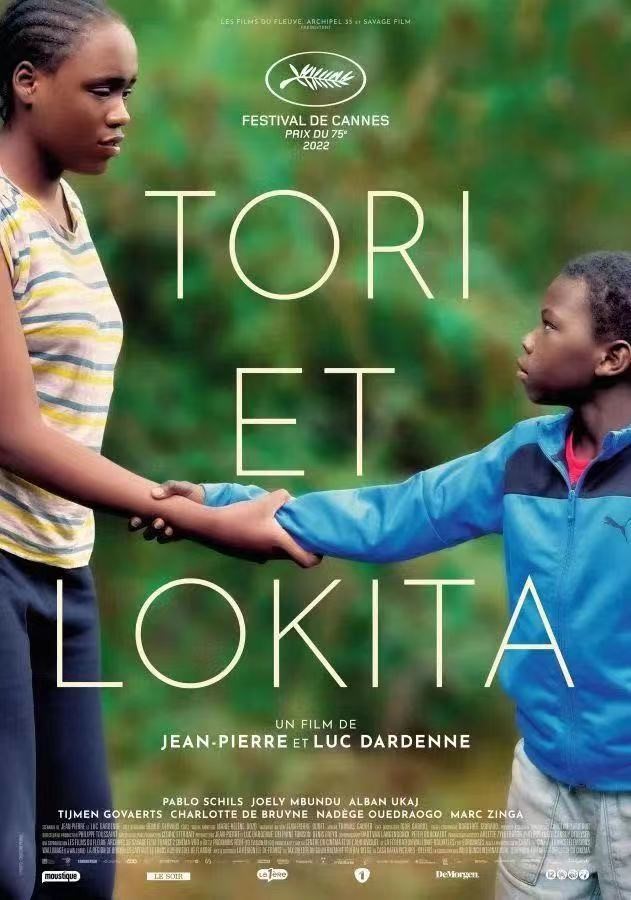
Tori and Rochita poster
"Our movie tells a story about friendship, a beautiful and fierce friendship that is not betrayed but indestructible." The Dardenne brothers said in their self-report about this movie, when we imagined such a friendship It is only when they become the heart of the film that we feel the two protagonists, Rochita and Tori, come alive as unique individuals. They began to move beyond the media-defined image of teenage immigrants as 'unaccompanied foreign minors', and they no longer existed merely to illustrate a case, a situation, a theme, or a topic. Not that their situation doesn't matter. Quite the contrary, and because of this powerful friendship, their image as exiled, lonely, exploited, humiliated teenagers takes on a new dimension. "
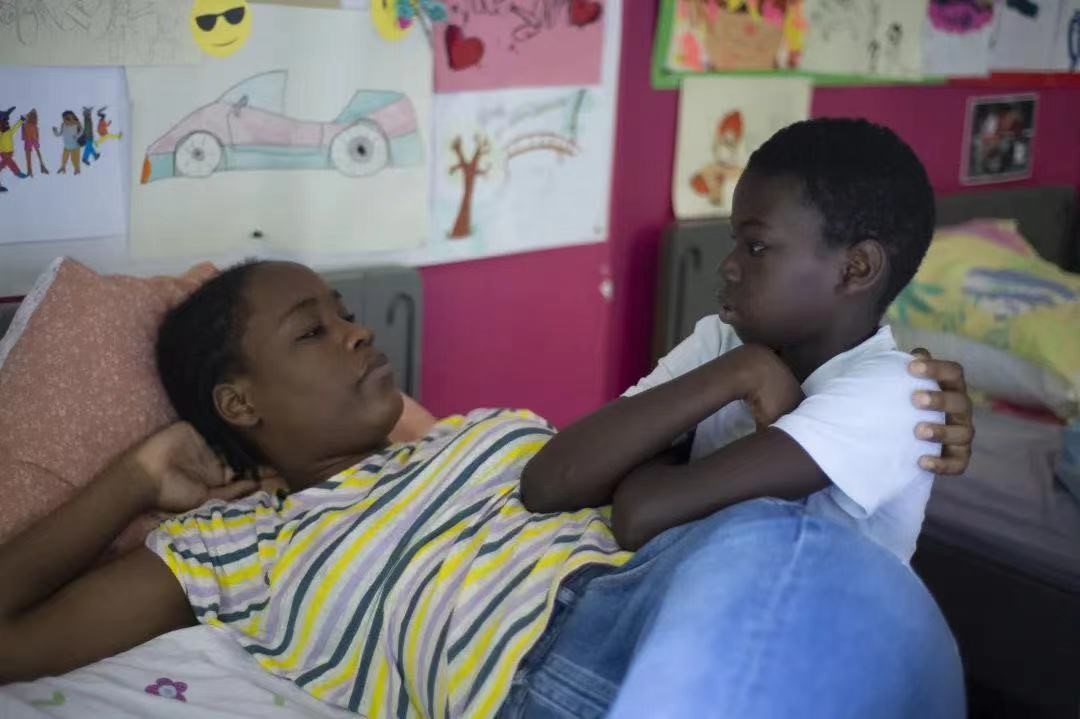
"Tori and Rochita" Stills
In this movie, the Dardenne brothers rarely give a clear and tragic ending, when the little boy desperately called for Rochita but never got an answer, cruel social exploitation and the bottom fate like duckweed The conclusive evidence of the crime was condensed on the screen. As a result, this movie is also regarded as the most dramatic and "angry" expression of the Dardennes brothers.
Speaking of such a plot setting, the Dardenne brothers said, "The starting point of the film is to portray friendship, and they have to find a solution to the problem raised-how to get Rochita out of her identity. Tori hopes that by pretending to be a sibling, But they found that this way was not feasible, and they needed a new way to solve it, but the way they found was getting worse and more suspicious, and the conflict of the story unfolded like this. In such darkness, the only way to get rid of it is through death. The friendship is not separated through specific rescue, but such an ending gives redemption to the characters." At the same time, the Dardenne brothers also mentioned that for this film, they wanted to expose some European minors who did not have their parents around. The living conditions of immigrants, "After all, many of these children may have disappeared in this way and disappeared."
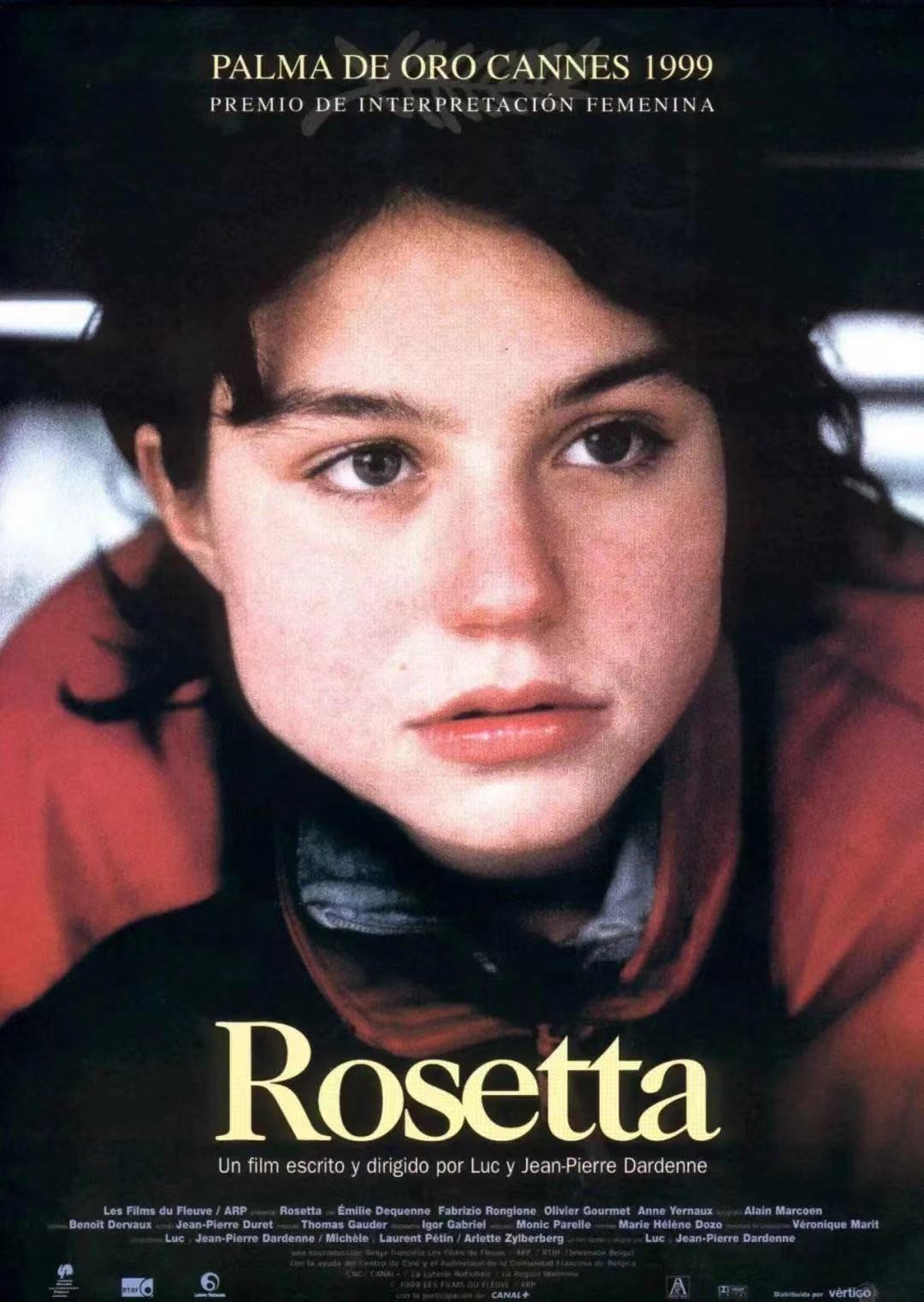
"Rosetta" poster
The high attention to reality, the revelation and reflection of social issues, and the humanistic care for vulnerable groups constitute the salient features of the works of the Dardenne Brothers, making them the backbone of realistic film creation in today's world. Some people think that the films of the Dardennes Brothers can be regarded as excellent social research models, and their films have even contributed exciting positive cases to change the world - "Rosetta", which won the Palme d'Or, caught the attention of the Belgian government At that time, a large number of people at the bottom were unemployed due to the impact of electronic information technology, and it was difficult for the workers at the bottom of society to be guaranteed. As a result, the Belgian government enacted a new labor law, the Rosetta Plan, which stipulates that it is illegal to pay underage workers wages below the legal minimum wage. The "Rosetta Youth Employment Assistance Program" successfully helped more than 4% of Belgium's unemployed youth find employment at that time.
At the closing of the film festival, The Paper conducted an exclusive online interview with the Dardenne brothers, talking about the concept and method of film creation, as well as the current thinking about film, society and people.
【dialogue】
Every movie is an encounter with the characters in the movie
The Paper: Many Chinese audiences got to know your films through DVDs before. Does holding a film festival mean anything to you?
Luc Darne: We are very happy that everyone can see these movies on the big screen, because when we make movies, we shoot them for the big screen. Through the retrospective, more people can watch the movies As an event, they can talk about it after the film is over, so we are very grateful for this retrospective to let Chinese audiences know about our film. Of course it's fine for them to watch at home, or on a smaller screen.
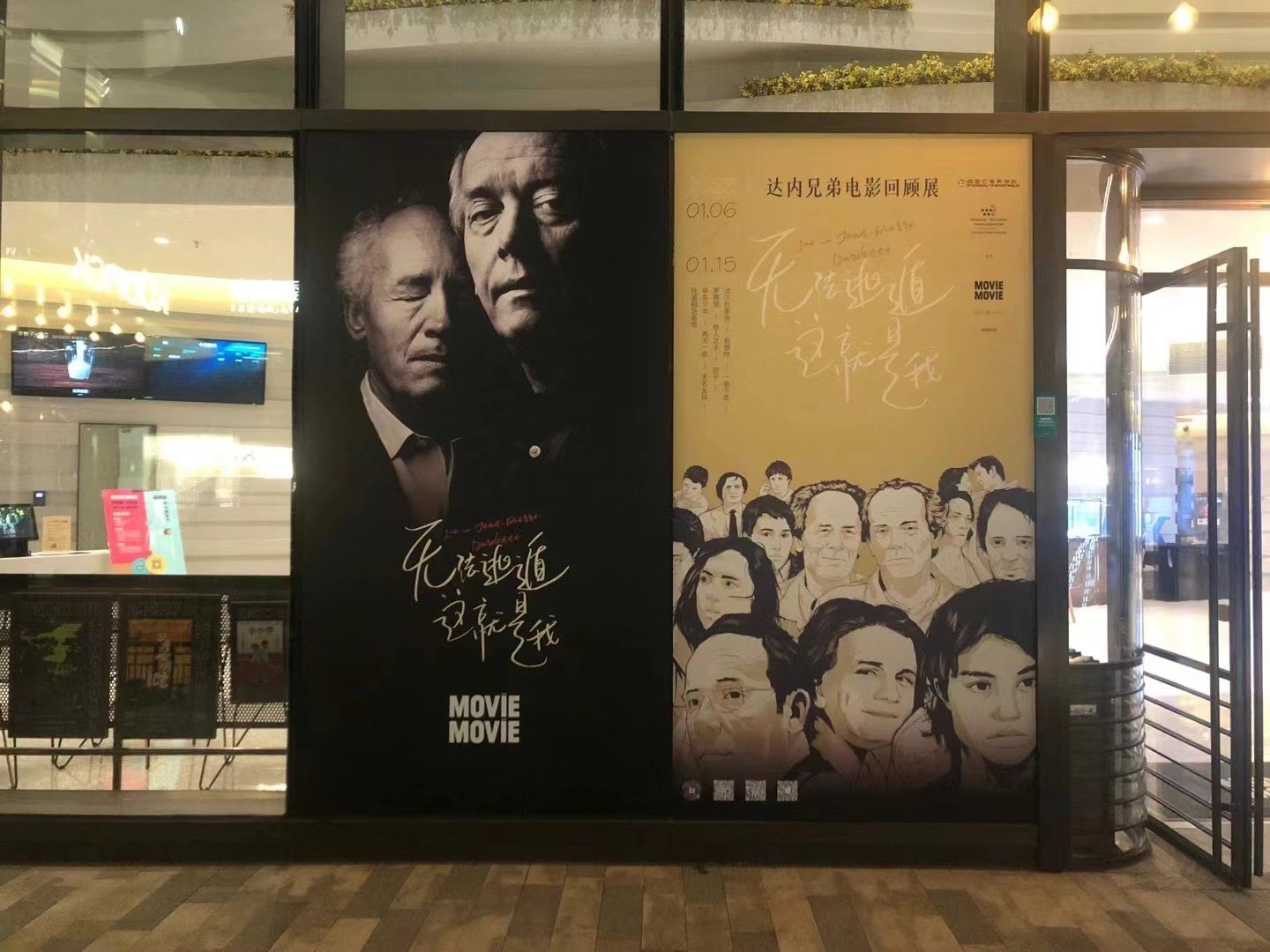
The Dardenne Brothers Film Retrospective Exteriors
The Paper: Many of your works seem to be inspired by social news. From social news events to film completion, what process do you go through in your work?
Luc Darnay: There is no one-size-fits-all approach, not all films are adaptations of social news. It is true that some movies come from social news, such as the movie "Lorna's Silence", which was heard from homeless people on the street. For example, the gangsters in Albania, they will organize the marriage of Albanian prostitutes to Belgians, and these prostitutes will get Belgian citizenship, and then she can join the Russian gangsters, because the Russian gangsters do not have Belgian citizenship, this is how to solve the latter nationality issue. Generally, these Albanian prostitutes are married to drug addicts in Belgium. At the beginning, they promise to give drug addicts 5,000 euros, and they need to give him another 10,000 euros for divorce after half a year. Then in the past six months, these people have been thinking of a way to kill drug addicts, and by creating the illusion of excessive drug use, the police generally will not find out. After hearing such horrible news at that time, we wondered if this prostitute was with homeless men or drug addicts, would they gradually develop feelings, would she still be willing to die with her legal partner, would she sympathize with them ? This turned the story from a social news into an ethical issue, and it became the core around which the film later revolved.
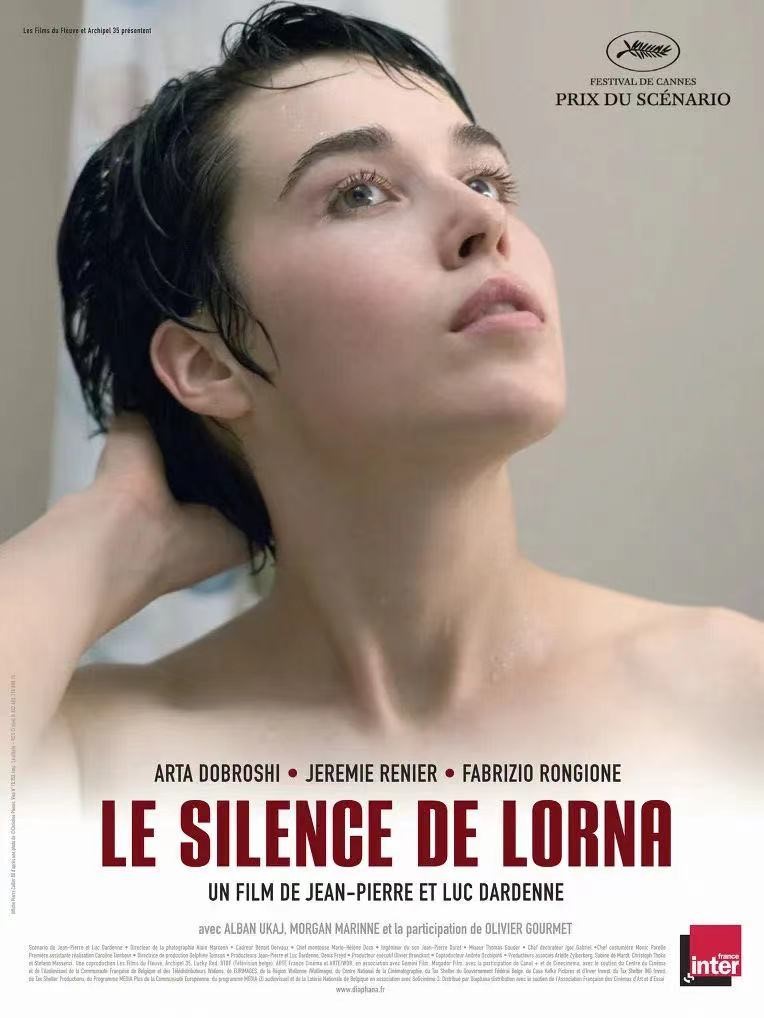
The Silence of Lorna poster
"Tori and Rochita" didn't come from the news. Ten years ago, we wanted to make a story about two children as the main characters, and we wanted to shoot underage children immigrating without their parents. At that time, we made relevant social Investigated, but never implemented. The actual writing of the script started two years ago, and the original story has changed from ten years ago. Every movie is different.
The Paper : This film festival screened very early films such as "Falsh Family" and "I Miss You", as well as the latest work "Tori and Rochita". What do you think has happened to your creation along the way? The change? Constantly describing all kinds of hopeless life at the bottom, will the eyes of the world become more angry or peaceful?
Jean-Pierre Darnay: This question is difficult to answer, but it is not difficult. Every movie is a new experience for us. Shooting every movie is an encounter with the characters in the movie, and it will enrich ourselves, and we will no longer be the original self. But we never planned anything in advance to be better or worse.
The word "anger" you mentioned just now, I guess it may be aimed at the movie "Tori and Rochita" that was just shown, and indeed it seems to have more revealing social reality than the previous movie And criticism, it seems like we want to see something through the film, but that doesn't mean it's a deliberate plan on our part to take our creations in a more revealing, angrier direction.
In the next film, maybe the vocabulary will become more "pure" for us. I hope we will put ourselves in a more pure state and start from scratch to make a new film shooting plan. Of course, sometimes It can be done, sometimes it can't be done.
Avoid self-repetition and let the facts speak for themselves
The Paper: Many movie fans will be curious about the way the two of you collaborate, and over the years, will your own creative state and aesthetics always keep in sync? Is there a mutual review process?
Luc Darnay: We were able to come together because we wanted to make the same film. When we collaborated, it wasn't about reaching a compromise of different points of view, but about feeling the same desire, which has been the case for a long time. Of course, we don’t have to be exactly the same at the same time. There are different ways and paths in the construction process, but it feels more like people sometimes talk and discuss with themselves. We also generally don't judge each other, we don't talk about what's good or bad about the finished film, because every time we finish one, we want to make another one, try not to repeat ourselves, not in The same story is told in different films. We don't want everyone to spend more than an hour watching similar stories and similar characters. We usually discuss with each other at the beginning of creation what the new story structure should be, and what kind of shots should be used to complete its shooting. Our filming team is also relatively stable. All our achievements are inseparable from this team. Of course, if the team makes some adjustments, we will continue to go on.
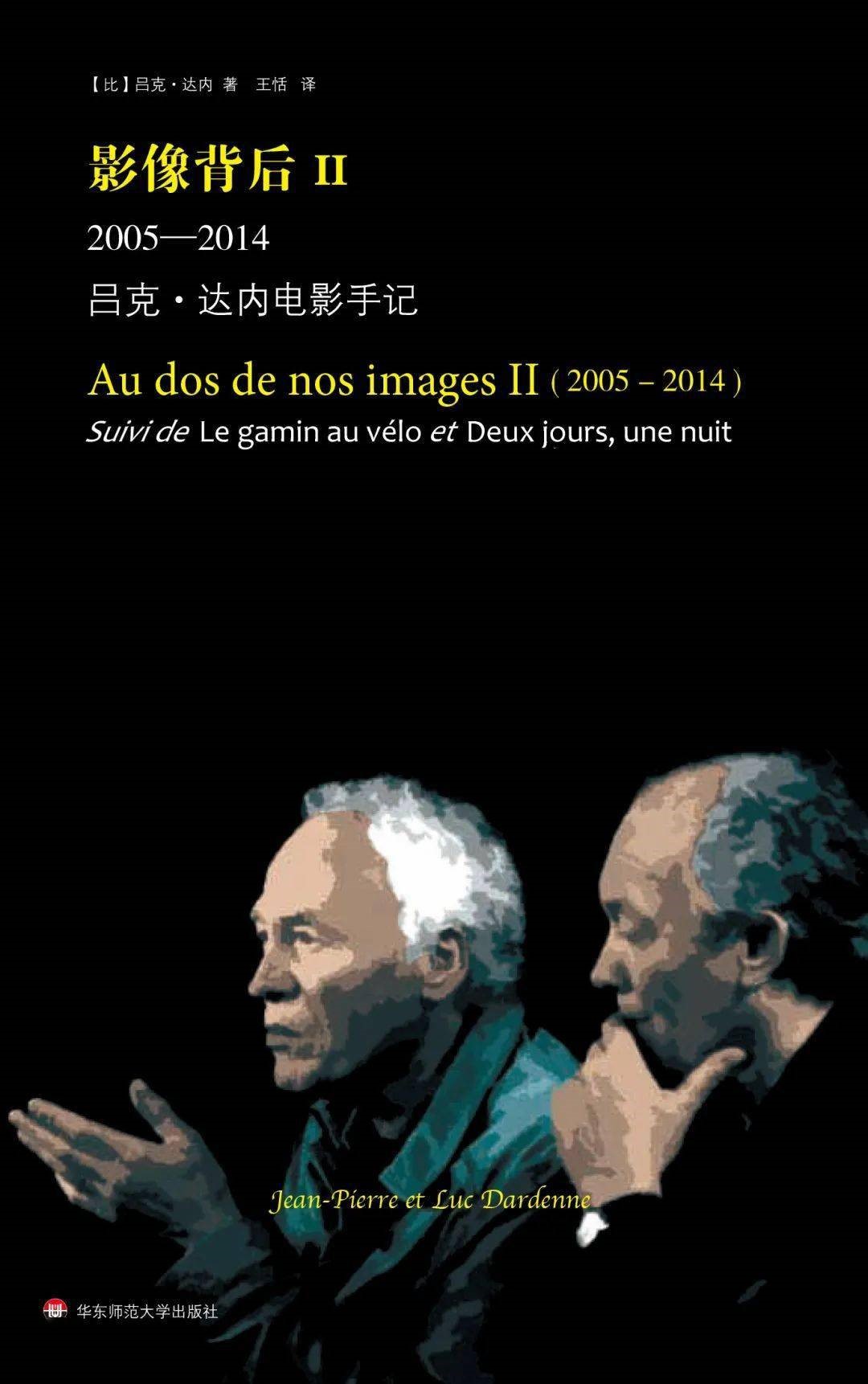
Film Notes of Luc Darnay
Surging news: Director Luc once wrote in his film notes, "It can be said that starting from "One Promise", all our films are variations of the words of Emmanuel Levinas:' I can’t escape, this is me.’” This is also the theme of your retrospective, can you talk about the significance of this sentence to your creation?
Luc Darne: This sentence is about the relationship between the "other" and the self. The other may be another voice of the self. Maybe we have not answered, but there is still a voice that tortures us about life or something. matter, play an inescapable responsibility.
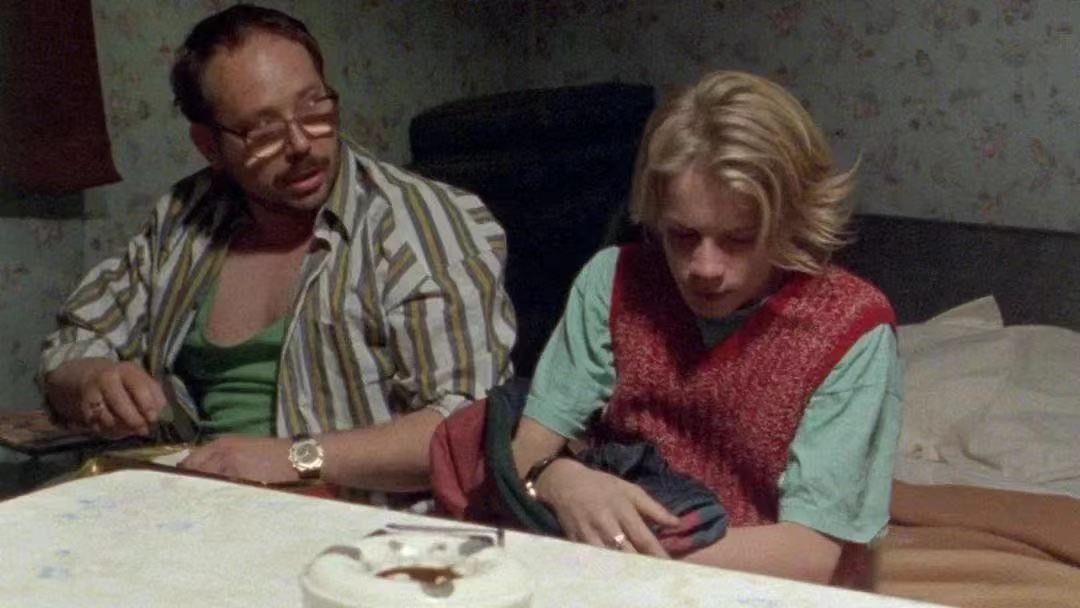
Stills of "One Promise"
For example, in "One Promise", the young boy may initially refuse the responsibilities he has to bear, but the widow of the deceased, Asita, has been calling him to fulfill his promise. The voice of the other is like an ethical inquiry, and at the same time it is his inner voice. At the same time, the "other" has become his own projection, and the torture he has experienced is also a process of continuous self-questioning. .
But this kind of philosophical thinking is not the motivation to guide or inspire our creation. Movies do not exist for the application of philosophical theories. I just said that the words of Levinas were very inspiring to me, or had a lot of echoes in my heart. My brother may not necessarily agree with this point. He may feel that these creative motivations come from discussions between us. Personally, there seems to be some parallel and echoing relationship between creation and Levinas’s philosophy.
Jean-Pierre Darnay: For example, the movie "One Promise" came from a social news. The boy wondered if he was going to cut off contact with his father. What we want to discuss is not to say The question of who is right and who is wrong, what we are interested in is what changed him unconsciously, and how he was driven to produce all these changes unconsciously.
When we make movies, we don’t want ourselves to stand in a God’s perspective, to show something through them in a way higher than the characters, or to turn the characters into puppets we manipulate. We need to let the facts speak and present the reality What the hell happened here. As a director, all we have to consider is how to make the set, how to move the camera and other issues.
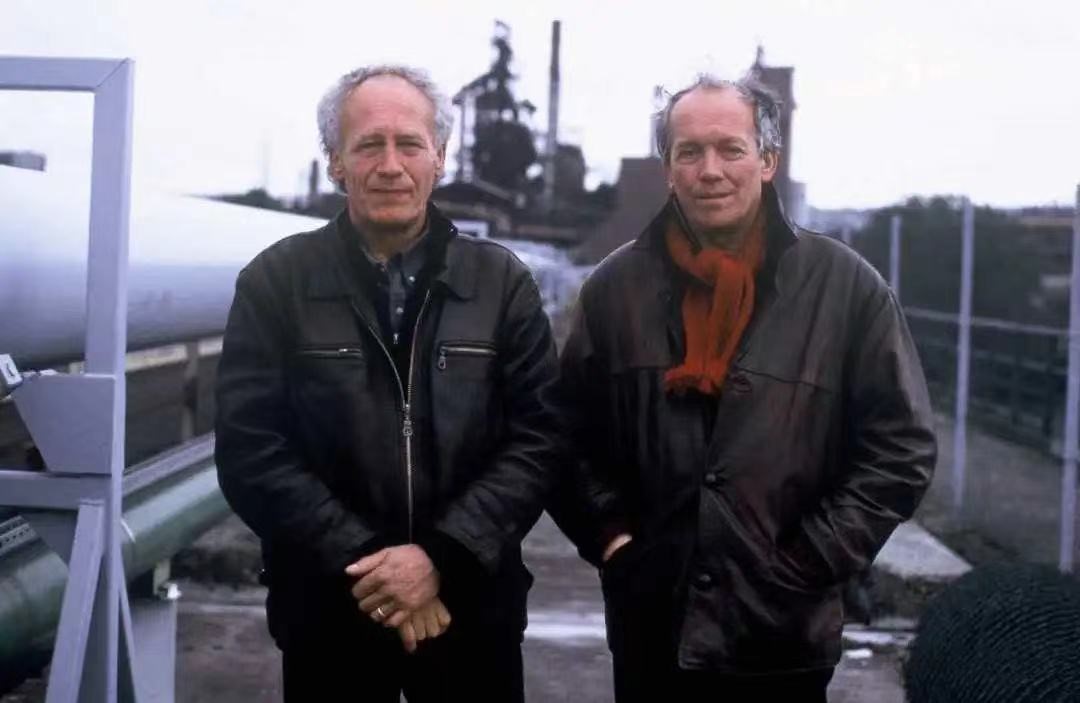
The Darnay brothers, Jean-Pierre on the left and Luc on the right
Behind those "big words" is a specific individual destiny
The Paper: Many people would say that your film is an excellent example of sociological research. When the film festival connects these works into a larger whole, will the significance of sociology be more prominently presented?
Luc Darne: We never think that the films we make are sociological issues or oriented to some sociological themes, we just present characters, these characters are presented through scenes and situations, and these situations just constitute various social situations.
The Paper: After "Rosetta" was released, the Belgian government revised the "Rosetta Plan" to guarantee youth employment. In your opinion, is it a rare case that a film like this can bring about social change, or is it a reality that can be hoped for in general?
Jean-Pierre Darnay: It is true that this problem exists all over the world. Movies are there, and asking questions may not necessarily solve the problem, or even solve the problem, but asking questions for the audience to discuss is the meaning. For example, the movie "Rosetta" you mentioned just now, our Belgian Minister of Labor saw it, and proposed a plan to promote youth employment. Our movie has the opportunity to expand the audience and influence of this plan, which is also It enables some young people to get further help when they are looking for a second job. This example may be just an occasional example, stimulating the implementation of these policies, but the purpose of filming at the beginning is not to solve the problem, and sometimes it may happen to be able to do some publicity for these solutions, making these solutions more effective Influence.
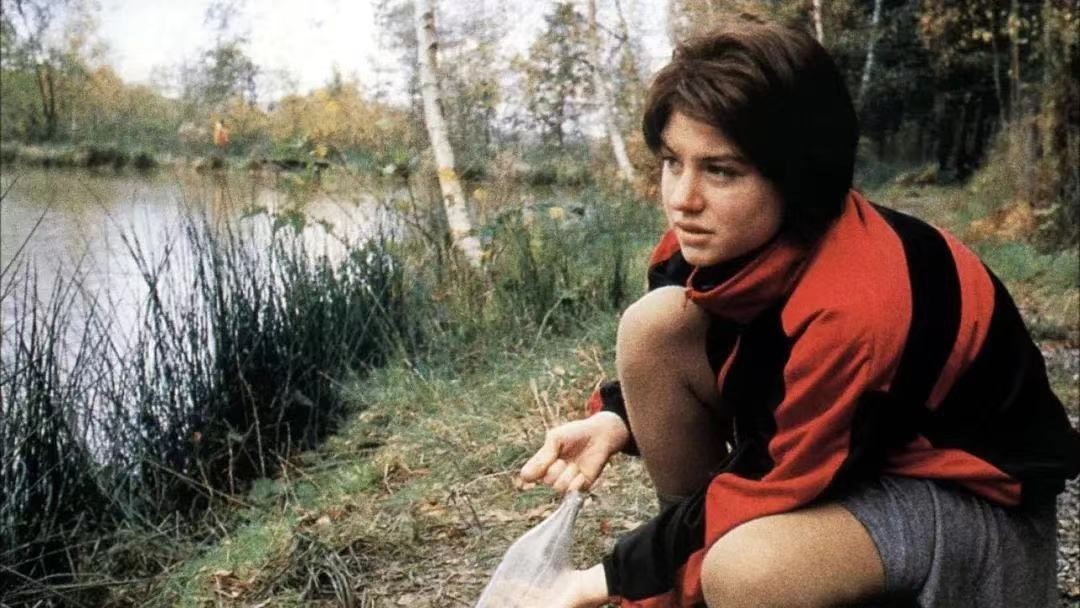
"Rosetta" stills
The Paper: As a director who strives to stay close to real life, major events that have occurred in recent years, such as the impact of the Russia-Ukraine conflict on Europe, and the changes in people's lives caused by the new crown epidemic, will these touch or affect your creation?
Jean-Pierre Darne: To be honest, events like the Russia-Ukraine conflict or the epidemic are not within the scope of our films. The characters we tell about in the film are current characters. Through these characters, we tell about our current The state of the city, the connection between us and the present is not achieved by closely following current events, or it does not need to be related to current events in such a close and direct way to present today's social reality.
For example, today we see the characters in "Tori and Rochita", they are living in our society today, such things will not happen in the world in the past, only in today's world, such things will happen. Situations where children immigrate to Europe on their own and at their own will. We hope that looking at the world through the eyes of these children, we will find a new perspective and see the immigrant "market". Their eyes are like a witness to the world.
The Paper: So is it a deliberate avoidance, no specific iconic events or symbols?
Jean-Pierre Darnay: It's not avoidance, it's just that we don't deliberately make this kind of connection with current events. We don't want to make documentaries. This is not the way we want to show. Because when it comes to current events, many major events will happen in this world, such as wars, epidemics, extremism, coups, etc., but what do these big words mean? What exactly happened? Our films tell the fate of individuals through specific stories, making their stories an echo of the reality of society and reflecting the reality of a society. Different current events are like various diseases in society. When society is sick, the symptoms shown are often superficial. We hope that movies can see more important and deeper problems through the appearance of current events. This is what we want to show of.
Luc Darne: To give an example, in 2022 we watched the Pakistani movie "Promised Land". There are two characters in it, one is a gay man and the other is a transgender person. In the newspapers, we often see some social news. It is difficult for Muslims to accept this identity. In Iran, Pakistan and other places, they may face the death penalty or imprisonment. This kind of film can reflect some social problems and reflect some realities that are happening in society through film. This is also our working method.
(Thanks for the translation of this dialogue: Lecturer Zhang Hua, Department of French, Fudan University)


